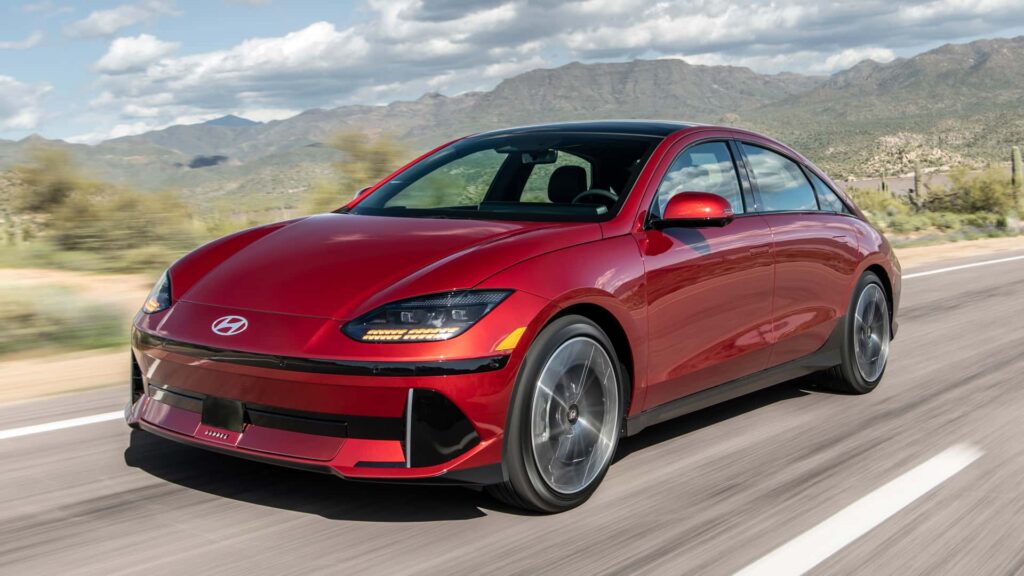Hyundai is making it even more enticing for customers to go electric by expanding its program that offers free home chargers to buyers of its EVs. The latest models to qualify for this offer are the 2024- and 2025-model-year Ioniq 5 and Ioniq 6. This move is a smart strategy to increase EV sales and other automakers should consider following suit.
The Hyundai Ioniq 5 and Ioniq 6 are already highly regarded electric vehicles in the American market. Despite the Ioniq 6 not being a top seller, it is a quality vehicle that deserves more attention. To sweeten the deal, Hyundai is now offering a free home charger with any lease or purchase of these cars.
This initiative builds upon a program that Hyundai introduced last summer and has now expanded to include more models. As of March 1st, the 2024 and 2025 Ioniq 6, along with the 2024 Ioniq 5, are eligible for the free home charger offer. Customers can choose between a complimentary ChargePoint Home Flex Level 2 charger or $400 in public charging credits through the ChargePoint app.
While the charger itself is free, customers are responsible for any installation costs. The charger must be hardwired into the home’s electrical system by a Hyundai-approved installer. Buyers must claim the offer within 60 days of their vehicle purchase or lease and complete installation within another 60 days.
This program is a great way to encourage more people to consider EVs, as charging infrastructure can be a significant barrier for potential buyers. A recent study found that the majority of car buyers would be more inclined to purchase an EV from a manufacturer that handles home charger installation.
Hyundai’s initiative is part of a growing trend among automakers to offer free or discounted home chargers to EV buyers. Ford, for example, offers a similar program that covers basic installation costs in addition to a free Level 2 charger. These incentives can make a significant difference for buyers, especially those new to the EV market.
Furthermore, Hyundai’s promotion could help boost sales of the Ioniq 6, a sedan that offers efficiency, range, and style but has struggled to compete with SUVs in the market. By offering a free home charger, Hyundai may attract more customers to consider the Ioniq 6 as a viable EV option.
In conclusion, Hyundai’s expanded program to provide free home chargers with EV purchases is a smart move that could benefit both customers and the company. By addressing the charging infrastructure challenge, Hyundai is making EV ownership more accessible and appealing to a wider audience. Other automakers should take note and consider similar initiatives to promote the adoption of electric vehicles in the market.

